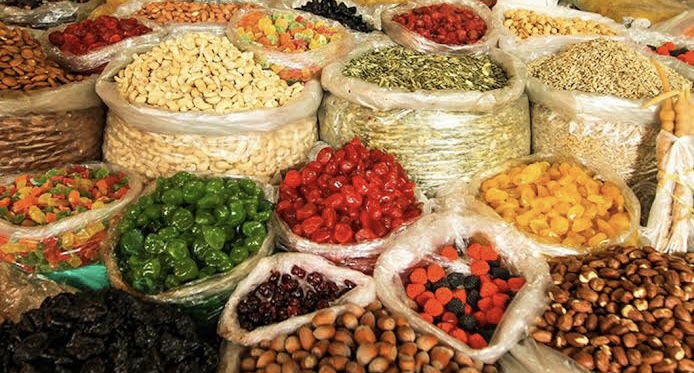With less than a week until the Eid al-Adha festivities scheduled for June 6, 2025, residents of Kano are voicing concerns over a steep rise in the prices of essential food items, especially spices and vegetables.
At Rimi market, shoppers lamented that the price hikes were making it difficult to adequately prepare for the holiday.
Ramlah Labaran Tanko, a regular buyer of spices, said that a mudu of ginger now costs N32,000, and she couldn’t afford cloves or black pepper as she usually would.
“Cloves now start at N200 per small pack, and you only get about ten pieces. We use a lot of spices during Sallah for meat dishes. I usually buy in large quantities, but it’s beyond my budget now,” she said.
Similarly, Hafsat Aliyu Buhari shared her frustration over the surge in vegetable prices.
“Ordinarily, I’d spend just N500 to cook stew for my family of four. Now I have to spend at least N1,000—and that’s after haggling hard,” she noted.
Ibrahim Aminu, shopping for meat and ingredients, said he’s feeling the pressure from multiple angles.
“Ram prices are already high, and now the spices my wife asked me to buy are too expensive. The pack I used to get for N1,000 is much smaller now,” he said.
However, market vendors argue that the spike isn’t tied to the upcoming Eid. Instead, they point to supply shortages as the main reason.
Malam Adamu, a vegetable seller at Rimi market, explained:
“Our supply has dwindled. We simply don’t have enough produce, and that’s what’s driving up prices—not the Sallah celebration. It’s not in our interest to raise prices when most people are already facing tough times.”
Dr. Abdulnasir Turawa Yola, an economist at the Federal University of Dutse, confirmed that price surges are common during festive seasons.
“When demand exceeds supply, prices naturally rise. During holidays, items like spices, oil, and vegetables often become more expensive. This aligns with basic economic principles,” he explained.
Eid al-Adha is one of the most significant Islamic holidays, during which Muslims traditionally slaughter rams and prepare rich meals—resulting in higher demand for food supplies.
It was observed that due to ongoing inflation, many households are scaling back their holiday plans this year.

